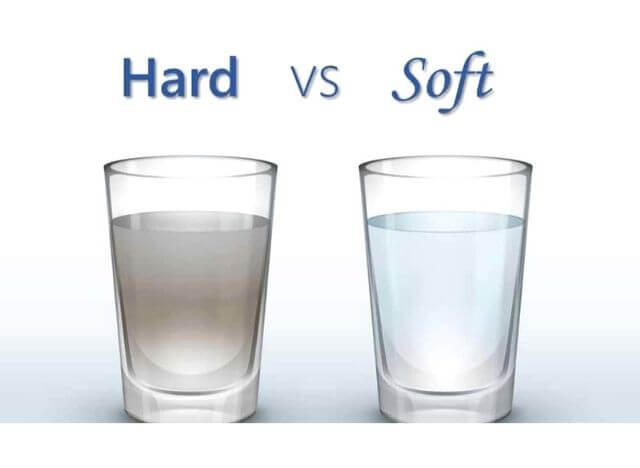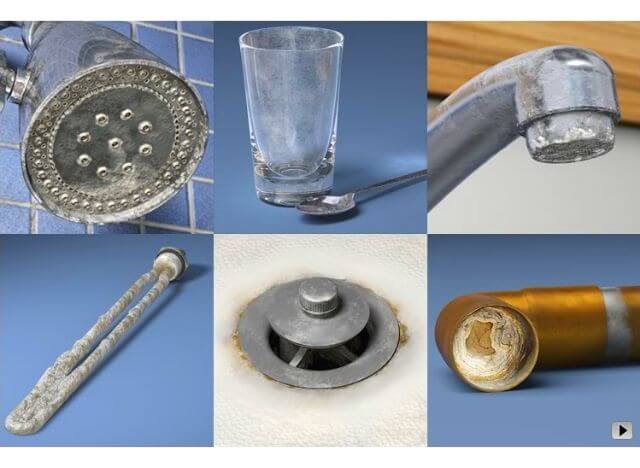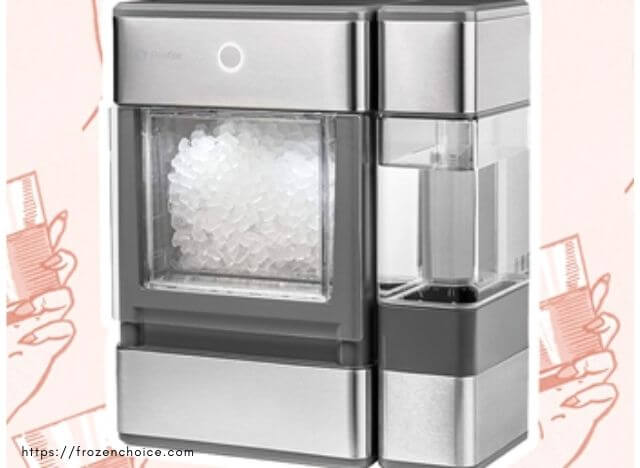Currently, health issues are fundamental, especially for what we put into the body. Many people wonder which is healthier, soft water or hard water and should they be used for cooking or making ice. This article provides you with information about soft water, answers the question “Should you run soft water to the ice maker?”, and guides how to convert hard water into soft water.
What is soft water?
Water is classified as hard water or soft water depending on the type and amount of minerals and natural salts dissolved in it.
Soft water has a very low ion concentration. The two primary ions in soft water are calcium and magnesium. Most soft water comes from natural sources such as rain. Soft water turns to hard water when it comes into contact with diverse mineral sources such as soil.
Soft water does not have many minerals and salts, but it usually contains large amounts of sodium and bicarbonate ions. Therefore, when using soft water, you do not need to worry about problems related to scale or deposition, which is suitable for the operation of equipment such as water purifiers, washing machines, dishwashers, water heaters, super kettles and ice machines.
However, you should not convert hard water into soft water with chemicals because this is very harmful to health.

Benefits of soft water
The uses of soft water are many, exceedingly soft water also compensates for the harmful effects of hard water. The regular use of hard water is suspected by many studies to be detrimental to user health. Besides, hard water is also harmful to appliances, electrical equipment, food, and human health.
The benefits of soft water can be mentioned as:
Avoid harm to food
Food can be easily degraded because of hard water, so using soft water will avoid harm to the food. Food signs that your water is soft are:
- Fast-cooking nuts are softer
- Water boils quickly
- Boiled vegetables are not chewy and discolored
- The rice has a sure consistency
For drinks, soft water makes it taste sweeter. There are also some signs like tea made with soft water will be clear and not acrid; coffees and herbs will not lose flavor.
No harm to household appliances
Soft water keeps household appliances from being affected by mineral deposits on it. Therefore, it helps to increase the longevity of water-using appliances.
- The water tank is free of dirt
- Water pipes do not clog and accumulate debris
- Cups and bowls keep the color
- Mirrors and bathroom doors are not tarnished
- Easier cleaning, less soap and detergent required
- There is no rusty looking stains on toilets, tubs, sinks, and showers

Good for skin and hair
Soft water is better for skin and hair than hard water, making it easier to remove soap from skin and hair. In addition, using hard water for a long time will make your skin and hair dry and damaged, quickly leading to dermatological diseases.
Further reading: Types of Ice Makers and Factors to Consider for Buying a Suitable One
Should you run soft water to the ice maker?
Hard water is very harmful to the ice machine, so you should run soft water into the ice machine to make the ice machine work longer and more efficiently.
Soft water has a low mineral content, so it will not lead to settling inside the ice maker during use. The use of soft water will help clean the ice machine; you need less frequent cleaning. Moreover, the amount of ice produced will be more evident than usual.
Many people think that hard water is more suitable for making ice than soft water; this is outdated and no longer relevant thinking.
If you do not have a source of soft water, you should soften the hard water to get the cleanest water for cooking or drinking and ice making. This is a very beneficial investment for your health and good for the future.
In addition, soft water when making ice will help your drink taste better than hard water. You should really replace hard water with soft water for home use.
How can you tell if you have hard water or soft water?
By using a water hardness test kit
There are several affordable testing options available. These test kits can test for hundreds of substances to simple one, including the instant-read strips.
Warning signs
By simple observation, you can also tell if you have hard water or soft water. If you have any of the following symptoms, you may have hard water. ·
- The faucet is covered with white scales
- Glasses are covered with a cloudy film after washing in the dishwasher
- You have trouble washing off the soap
- You suffer from chronic dry skin
Soap test
This simple test won’t tell you about the mineral concentration in your water, but it is a cheap and easy way to tell if you have hard water. Fill the glass halfway with water and add soap. Close the top lid and shake well. If you have hard water, the water will be cloudy with minimal sludge. If your water is soft, it’s almost transparent, but there will be plenty of foam on top.
The regions you are living
As mentioned above, hard water is water with a high mineral content. It is formed when water seeps through the soil, sucking up calcium and magnesium deposits along the way. The type of soil in your area is a major determinant of water hardness. Water flowing through volcanic rock (flint) will soften, while sedimentary rocks such as limestone, chalk, or gypsum will harden the water.
If you are living in the following regions, it’s possible that you have hard water because these places in the US often have the highest concentrations of mineral deposits.
- Arizona
- Southern California
- Colorado
- Utah
- Nevada
- Texas
- New Mexico
- Kansas
How to make hard water soft
Depending on the type of hard water, you will have different ways of softening it. There are basically three types of hard water, the softening method of each class is as follows:
Temporary hard water
This is hard water containing salts; it is only temporary hard and is easy to soften by using heat to boil the water. This is a simple and straightforward way. After boiling the water, you can run this soft water into the ice maker.
Permanent hard water
Permanently hard water is harder to soften; you cannot use boiling to convert it into soft water. Always hard water must use baking soda to soften; this is a way not to be used when softening water.
Hard water ingredients
Component hard water is a mixture of permanent hard water and temporary hard water. You can use the above two ways to soften this challenging water.
The best way to soften hard water effectively and without much effort is to use a water purifier with a reverse osmosis RO screen. This filtration technology allows for the removal of most of the water-soluble substances and softens the water quickly.
You may also like: The 10 Best Portable Ice Makers for Home Use
See “How to soften hard water naturally”:
Conclude
Thus, soft water is more suitable for running an ice maker than hard water. For health and long-term benefits, you should convert hard water into soft water for use. I hope this article brings you helpful information.
Reference:
1. The Effects of Hard Water in Your Ice Maker, easyice.com, Retrieved on Apr. 11, 2022
2. Hard vs Soft water, blog.constellation.com, Retrieved on Apr. 12, 2022

